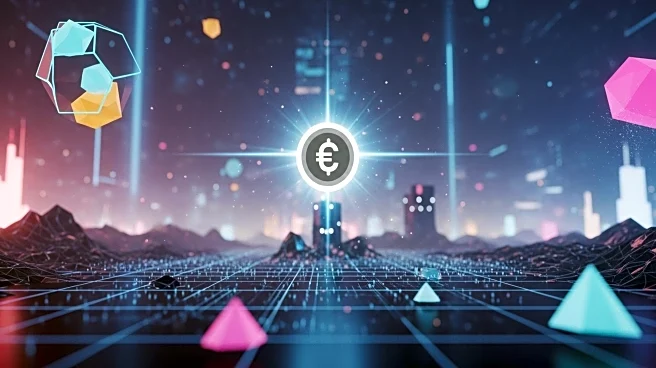What's Happening?
Epic Games has announced a new initiative allowing Fortnite creators to sell their own in-game items directly through the platform. This move is designed to offer creators a better revenue share compared to Roblox, with Epic Games initially retaining 50% of sales, increasing to 100% for the first year. This translates to creators earning 37% of in-game sales, which will double to 74% for the first year. The announcement comes as Fortnite faces lower player numbers in its core battle royale modes, while Roblox's player count has surged. Epic Games aims to boost creator content and expand Fortnite's audience by offering a more lucrative deal for creators.
Why It's Important?
This development is significant as it positions Epic Games to compete more aggressively with Roblox, a major player in the gaming industry known for its user-generated content model. By offering a higher revenue share, Epic Games is likely to attract more creators to its platform, potentially increasing the variety and quality of content available in Fortnite. This could lead to a shift in the gaming landscape, with creators having more incentive to develop content for Fortnite, thereby increasing its appeal to players. The move also reflects Epic Games' strategy to diversify its offerings and strengthen its market position amid fluctuating player engagement.
What's Next?
Epic Games plans to continue enhancing its platform by introducing a 'sponsored' block on Fortnite's main screen, allowing creators to pay for placement. This initiative will further support creator engagement payouts, with Epic Games using 50% of the revenue for this purpose, boosted to 100% for the first year. Additionally, Epic Games will launch a 'thin client' version of Fortnite, focusing on creator-made games, which may attract more players to these experiences. These steps indicate a strategic shift towards prioritizing creator content and adapting to changing player preferences.
Beyond the Headlines
The introduction of a new revenue model for creators could have broader implications for the gaming industry, potentially influencing how other platforms structure their creator compensation. It raises questions about the sustainability of traditional game modes and the growing importance of user-generated content in maintaining player interest. This shift may also impact the economic dynamics within the gaming community, as creators gain more financial power and influence over game development.









